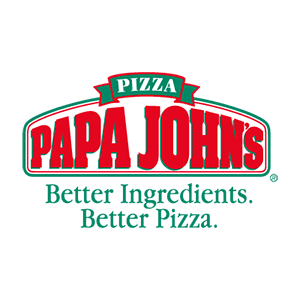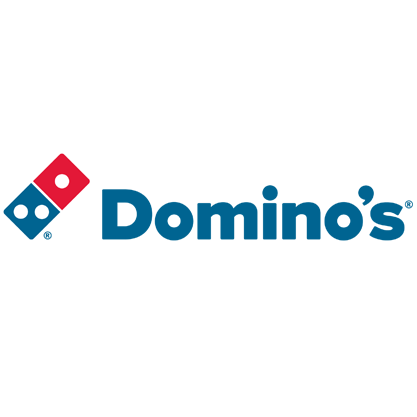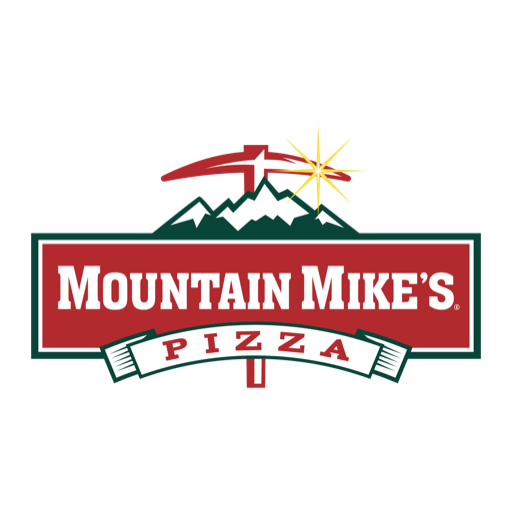Round Table Franchise in 2025: Costs, Fee & FDD
Explore the ins and outs of investing in a Round Table Pizza franchise. From startup costs and franchise fees to growth potential and support systems, discover what makes this established pizza brand a unique opportunity for franchisees.

Table of Contents:
Round Table Pizza is a well-established, California-based pizza franchise that first opened its doors in 1959. Founded by Bill Larson, Round Table has built a reputation for crafting premium-quality pizzas that stand out in a competitive industry. The franchise’s commitment to “The Last Honest Pizza” reflects Larson’s dedication to using only the freshest ingredients and hand-rolling dough daily, which has become a central theme of the brand’s identity. Over the years, Round Table has developed a loyal customer base, drawn by its unique approach to the traditional pizza experience and dedication to quality.
At the core of Round Table’s menu is its classic line of pizzas, characterized by unique recipes, such as the King Arthur’s Supreme and Montague’s All Meat Marvel. Besides pizza, the franchise offers a variety of menu items, including salads, appetizers, and sandwiches, catering to diverse customer preferences. Their core customer base consists primarily of families, groups of friends, and casual diners looking for a hearty meal in a comfortable, welcoming atmosphere. Round Table’s model appeals to those seeking a higher-end pizza experience with a focus on quality ingredients and thoughtful service.
Today, Round Table Pizza operates more than 400 locations, primarily in the United States, with a few international branches. Most of these are in the western U.S., where the brand has established itself as a beloved staple. With daily visits from thousands of loyal customers across its locations, the franchise has managed to retain a competitive presence in the full-service pizza sector, even as it continues expanding its reach and tapping into new markets.
As a franchise, Round Table provides a robust support system to its franchisees. Franchisees benefit from comprehensive training programs covering everything from operational efficiency to customer service excellence. Additionally, Round Table offers ongoing marketing support, regional guidance, and operational insights, enabling franchisees to align with the brand’s standards while adapting to local customer needs. These programs aim to ensure that each location maintains consistent quality and service, embodying the essence of the “honest pizza” promise.
Round Table Franchise Insights
- In a 2021 customer survey, Round Table Pizza was rated highly for quality and customer satisfaction, placing it among the top pizza franchises for its authentic and family-friendly experience.
- Round Table has also introduced tech-forward options like online ordering and delivery partnerships, enhancing its appeal to younger customers and streamlining operations across locations.
- The brand has a well-established presence, with 408 franchised units and only 2 corporate-owned locations, indicating a franchise-centric growth model.
- Round Table has been franchising since 1962, demonstrating its stability and long-standing success in the restaurant industry.
Round Table Franchise Key indicators
Growth YOY (%)
0%
vs industry 1%
Total U.S. Franchised Units
408
3-Year Failure Rate
9%
vs industry 10%
Sales-to-Investment ratio
1.4:1
How much does it cost to open a Round Table franchise?
Understanding the potential investment size and capital requirements is crucial when considering opening a Round Table franchise. Round Table franchise cost, including initial franchise fees, equipment costs, and ongoing operational expenses, impact the feasibility and profitability of the venture. Thoroughly evaluating these factors ensures that potential franchisees are prepared for the financial responsibilities and can make informed decisions about their ability to sustain and grow the business, ultimately contributing to long-term success.
Min & Max Investment
Opening a Round Table franchise involves several key costs, which are outlined in Item 7 of the Franchise Disclosure Document (FDD). you can see a breakdown of the costs to open a Round Table below from the most recent Item 7 below:
| Type of Expenditure | Minimum Investment | Maximum Investment |
|---|---|---|
| Initial Franchise Fee | $25,000 | $25,000 |
| Travel and Living Expenses While Training | $1,500 | $3,500 |
| Real Estate and Improvements | $175,000 | $600,000 |
| Furniture, Fixture & Equipment | $210,000 | $295,000 |
| Point of Sale Systems and Related Technology | $35,100 | $59,000 |
| Opening Inventory/Smallwares | $12,000 | $15,000 |
| Interior Décor Package/Exterior Signage | $15,000 | $35,000 |
| Uniforms | $1,000 | $2,000 |
| Insurance | $4,500 | $7,000 |
| Additional Funds – 3 Months | $25,000 | $50,000 |
| Total Estimated Initial Investment | $504,100 | $1,091,500 |
Item 7 in the Franchise Disclosure Document (FDD) is the “Estimated Initial Investment” section. It outlines the total costs a franchisee can expect to incur when starting a franchise, including the initial franchise fee, equipment, inventory, real estate, and other startup expenses. This section is crucial because it provides potential franchisees with a detailed understanding of the financial commitment required, helping them assess affordability and plan their investment strategy effectively.
Required Capital
To open a Round Table franchise, the required capital involves both the initial investment costs and a net worth requirement set by Round Table. Let’s take a closer look below:
- Initial Investment As shown above, the total estimated initial investment ranges from $504,100 to $1,091,500. This includes all the startup costs such as the franchise fee, real estate, construction, equipment, initial inventory, and additional funds for initial operating expenses. Assuming that you will finance your franchise investment, you should plan to have 20% of the total investment amount in the form of equity (cash) for the investment.
- Liquid Assets While exact figures for Round Table aren’t provided, a typical requirement for similar franchises is $200,000 to $300,000 in liquid assets. This helps ensure the franchisee has sufficient cash flow to cover early operational expenses and any initial shortfalls.
- Net Worth Based on similar franchises, a net worth requirement of approximately $500,000 to $1 million is common. This shows financial stability and supports the brand’s confidence in the franchisee’s ability to manage the business.
How much does a Round Table franchise owner make?
Calculating the salary of a Round Table franchise owner involves analyzing gross sales to determine total revenue, assessing operational efficiency to understand profit margins, and accounting for franchisor fees and additional expenses such as rent, utilities, and payroll. Effective management of these factors can significantly impact the profitability and financial success of a Round Table franchise owner. This comprehensive financial analysis helps estimate net profits, from which the owner’s salary can be derived. A clear understanding of these factors ensures accurate salary projections and financial planning for sustainable business operations.
Round Table Revenue & Gross Sales
For the most recent year, Round Table franchises achieved a median gross sales of $973,248. This financial performance underscores the brand’s robust consumer demand and potential for lucrative returns for franchisees.
Which key factors impact the average revenue performance of Round Table franchisees?
The performance of U.S. franchisee median gross sales for Round Table Pizza likely reflects several contributing factors. First, the ongoing consumer demand for high-quality, dine-in experiences, particularly in the post-pandemic era, has helped drive sales for established brands like Round Table. Additionally, increased digital ordering and delivery options have allowed franchisees to reach a broader customer base, tapping into convenience-focused diners. Inflation has likely played a role too, with rising costs prompting menu price adjustments, which can lead to higher gross sales even as unit volume remains steady. Lastly, effective national and regional marketing campaigns, alongside Round Table’s commitment to quality ingredients, may have reinforced brand loyalty, supporting stable or growing sales across its U.S. locations.
Round Table Franchise Operational Costs
Operational costs for a franchise like Round Table are the ongoing expenses required to run the day-to-day operations of the business. These costs are essential for maintaining the business’s functionality and ensuring smooth operations. For a Round Table franchise, operational costs include:
- Food and Beverage Costs Maintaining high-quality ingredients, including fresh dough and premium toppings.
- Labor Costs Wages, benefits, and training for kitchen and front-of-house staff.
- Utilities Energy costs for ovens and other kitchen equipment.
- Rent and Lease Expenses Costs associated with leasing a physical location, particularly in high-traffic areas.
- Inventory Management Ensuring adequate stock levels to meet customer demand without excess waste.
- Maintenance and Repairs Regular upkeep of equipment and dining facilities to maintain a quality customer experience.
Careful planning and budgeting for these operational costs are crucial for the financial health and success of your Round Table franchise.
Round Table Franchise Fees
When considering a Round Table Pizza franchise, it’s essential to understand the ongoing fees involved, as these are critical to financial planning and maintaining brand standards. Here are the key fees you can expect:
- Royalty Fee This is set at the greater of 4% of net sales or a minimum of $750 per month, ensuring that both new and established locations contribute to the brand.
- Marketing Fee A marketing fee of 4% of net sales, dedicated to brand-wide promotions, helps maintain and grow customer awareness on a national and regional level.
- Potential Additional Fees Depending on the specific location or operational needs, there might be other fees involved, such as technology or equipment maintenance fees.
Understanding these ongoing fees will help you manage cash flow effectively and ensure compliance with franchise agreements.
Round Table Franchise Earnings
Based on the most recent data, Round Table Pizza franchisees reported median gross sales of approximately $973,248. For owner-operators, estimated annual earnings were around $97,325, which represents a solid return for hands-on involvement in the business. This figure provides a snapshot of potential profitability, though actual earnings can vary depending on factors such as location, local market conditions, and operational efficiency.
These earnings estimates are reflective of franchisees who actively manage their locations, benefiting from both the brand’s established customer base and its support systems. Prospective franchisees should consider these numbers as part of their financial planning while also accounting for the ongoing operational costs and fees to get a complete picture of potential returns.
How to Open a Round Table Franchise
Here’s an overview of the steps to become a Round Table Pizza franchisee, from initial inquiry to opening day:
- Initial Inquiry You or your franchise specialist submits an initial inquiry basic information about your interest and background. You should also conduct thorough research on the franchise, including seeing all of the information available on the Vetted Biz franchise intelligence platform, including access to the most recent Franchise Disclosure Document (FDD).
- Pre-Qualification If you’re interested, you’ll complete a preliminary application, detailing your financial qualifications and background. This helps the franchise assess if you meet the basic financial and operational requirements.
- Initial Meetings and Interviews You’ll have several discussions with the franchise development team to discuss the business model, support structure, and your goals. This may also include a tour of an existing location or meetings with existing franchisees.
- Discovery Day Many franchises hold a Discovery Day, where you visit the corporate headquarters, meet the executive team, and get a hands-on introduction to the brand’s culture and operations. This visit allows both parties to ensure alignment.
- Signing the Franchise Agreement If both you and the franchise are ready to move forward, you’ll sign the franchise agreement and officially commit to becoming a franchisee. This step includes paying the franchise fee and securing any necessary financing for initial investments.
- Site Selection and Lease Negotiation The franchise team will help you find an optimal location, analyzing factors like traffic, demographics, and competition. They may also assist with lease negotiations to secure favorable terms.
- Training Program You’ll participate in a comprehensive training program covering all aspects of operations, including food preparation, customer service, marketing, and administrative tasks. This is designed to prepare you for day-to-day management.
- Build-Out and Setup With corporate guidance, you’ll work on building out the restaurant, ordering equipment, and setting up the interior according to brand standards. This includes coordinating with contractors and obtaining any required permits.
- Pre-Opening Marketing and Hiring Prior to opening, you’ll recruit and train your staff and implement pre-opening marketing initiatives. This helps generate buzz and ensures that your team is ready to deliver a consistent customer experience.
- Grand Opening and Start of Operations Once everything is ready, you’ll officially open your doors to the public. Round Table may provide ongoing support during the opening phase to ensure smooth operations, setting you up for success.
Pros & Cons
Pros
Established Brand: Round Table Pizza has been around since 1959, offering a strong reputation and customer loyalty, particularly in the Western U.S.
Quality-Driven Product: The brand’s focus on premium ingredients and “The Last Honest Pizza” philosophy appeals to customers looking for quality over fast-food options.
Multi-Channel Revenue: With dine-in, takeout, and delivery options, franchisees have diversified income streams to cater to a range of customer preferences.
Cons
Competitive Market: The pizza industry is highly competitive, with both national chains and local pizza shops vying for market share.
Labor-Intensive Operations: As a full-service restaurant, labor and staffing requirements can be high, and managing turnover may require extra time and effort.
Limited Geographic Reach: Round Table’s brand recognition is strongest in the Western U.S., which could be a drawback if you’re located elsewhere and need to build local awareness.





